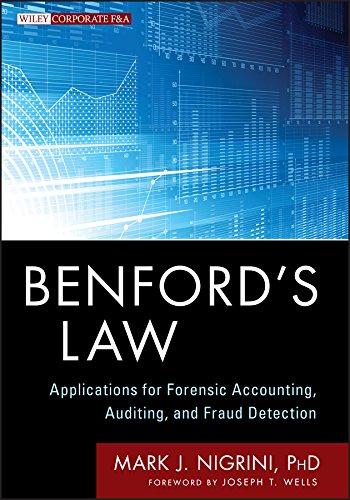Question
Question 1 Winter County enacted a law establishing a Highway Special Revenue Fund, effective January 1, 2020. The fund expenditures were to be financed by
Question 1
Winter County enacted a law establishing a Highway Special Revenue Fund, effective January 1, 2020. The fund expenditures were to be financed by a special gasoline tax. Prepare journal entries to record the following transactions for the calendar year 2020. Then prepare a preclosing trial balance as of December 31,2020. a. Winter County adopted the following budget for the fund:
| Estimated revenuesgasoline taxes | 855,000 |
| Appropriationsmaintenance salaries | 745,000 |
| Appropriationsmaintenance supplies | 90,000 |
| Budgeted increase in fund balance | 20,000 |
b. The county collected gasoline taxes of $825,000.
c. The county paid maintenance salaries of $730,000.
d. The county placed purchase orders for maintenance supplies totaling $65,000.
e. The maintenance supplies ordered in d., above, were received and accepted. Because the purchase orders allowed for additional quantities to be shipped, the invoices totaled $68,000.
f. Because of the shortfall in gasoline tax collections, the county reduced estimated revenues by $30,000. It also ordered a halt to all purchases of maintenance supplies and reduced the appropriation for maintenance supplies by $20,000.
g. Unpaid salaries for the last few days in December (to be paid in January 2021) totaled $14,000.
Question 2
Use the preclosing trial balance prepared for Question 1 above, regarding Winter County, to close the accounts for the year ended December 31, 2020.
Question 3
The following data comes from the 2020 financial statements of the Village of Matthews. Although presented in summarized format, the balance sheet debits and credits are equal and the operating statement information is complete.
| General Fund - Balance Sheet Elements | |
| Cash | $1,200,000 |
| Short-term Investments | 405,000 |
| Property taxes receivable - delinquent | 282,000 |
| Due from other funds | 58,000 |
| Accounts payable and other accrued liabilities | 920,000 |
| Assigned fund balance | 90,000 |
| Unassigned fund balance | 935,000 |
| General Fund - Operating Statement Elements | |
| Revenues, including property taxes of $6,125,000 | $8,350,000 |
| Expenditures (total) | 7,510,000 |
| Transfer out to Debt Service Fund | 400,000 |
| Excess of revenues and other sources over expenditures and other uses | 440,000 |
| Debt Service Fund - Balance Sheet Elements | |
| Cash and cash equivalents | 230,000 |
| Restricted fund balance | 230,000 |
| Debt Service Fund - Operating Statement Elements | |
| Debt service expenditures: | |
| Principal | 100,000 |
| Interest | 200,000 |
| Operating transfer from General Fund | 400,000 |
| Excess of revenues and other sources over expenditures and other uses | 100,000 |
Calculate the following ratios for the Village of Matthews:
- Number of days cash on hand - General Fund
- Quick ratio - General Fund
- Property tax receivable delinquency rate
- Budgetary cushion for the General Fund (Assume all assigned fund balance is available.)
- Debt service burden
- Excess of revenues and other sources over expenditures and other uses, as a percentage of revenues - Combined, General Fund and Debt Service Fund (Hint: The transfers out and in cancel each other. Therefore, use the revenues for the denominator.)
- Assess the liquidity of the Village of Matthews, based on the standard that the General Funds number of days cash on hand should be no less than 45 (and that 60 is more desirable) and that the quick ratio should be at least 1.
Question 4
Following is a trial balance (in thousands) showing the accounts of Beta Hospital at December 31, 2019. Using the information from the trial balance, answer the following questions. Show the calculations used.
- What is number of days cash on hand?
- What is the number of days of revenue in net patient accounts receivable?
- How much is the excess of revenues over expenses?
- What is the operating margin?
- What is the long-term debt-to-equity ratio at year-end?
- What is the interest coverage (times interest earned)?
| Debits | Credits | |
| Cash | $5,000 | |
| Patient accounts receivable | 8,000 | |
| Allowance for bad debts | $1,000 | |
| Food and medicines inventory | 2,000 | |
| Buildings | 40,000 | |
| Accumulated depreciation, buildings | 8,000 | |
| Equipment | 20,000 | |
| Accumulated depreciation, equipment | 10,000 | |
| Land | 5,000 | |
| Accounts payable | 6,000 | |
| Accrued interest payable | 200 | |
| Current portion of bonds payable | 1,500 | |
| Long-term bonds payable | 34,000 | |
| Net position, January 1, 2019 | 17,300 | |
| Patient service revenues (net) | 36,000 | |
| Patient care expense | 20,000 | |
| Dietary expense | 2,000 | |
| General and administrative expense | 6,000 | |
| Bad debts expense | 1,000 | |
| Depreciation, buildings and equipment | 4,000 | |
| Interest expense | 1,000 | |
| Totals | $114,000 | $114,000 |
Step by Step Solution
There are 3 Steps involved in it
Step: 1

Get Instant Access to Expert-Tailored Solutions
See step-by-step solutions with expert insights and AI powered tools for academic success
Step: 2

Step: 3

Ace Your Homework with AI
Get the answers you need in no time with our AI-driven, step-by-step assistance
Get Started


